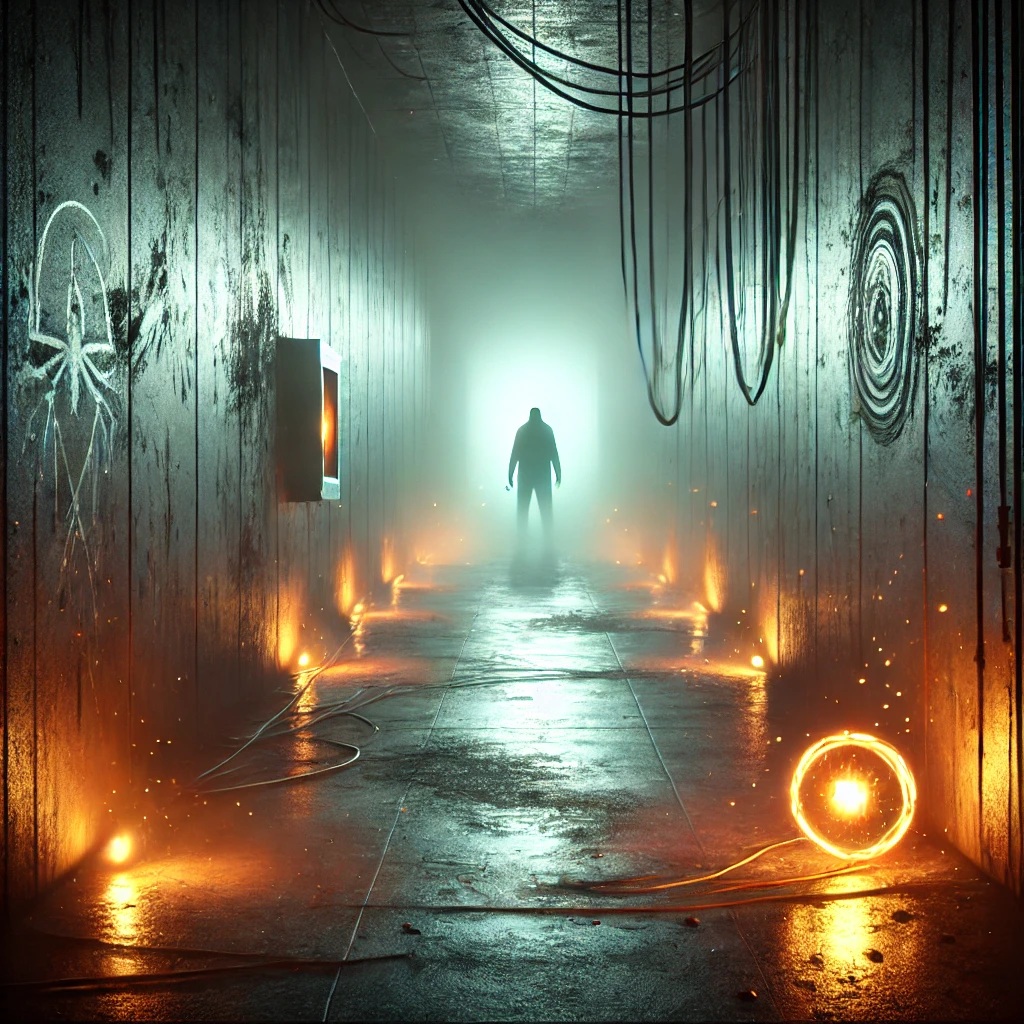Horror in the World of Gaming

Types of Horror in Video Games
From the dawn of time, the concept of horror games has harmonized perfectly with the gaming world, much like sports games—particularly football—and fighting games. However, horror games have witnessed an evolution in ideas that deserves study. To understand the stages horror games have gone through, we must first identify the types of horror, which games executed them well, and which ones didn’t.
Horror can be divided into jump-scare horror, psychological horror, tension-based horror (like claustrophobia), fear of the unknown, and the stalker enemy trope, where a persistent enemy pursues you.
1- Jump Scares

This is the most primitive type of horror, relying primarily on shock or surprise, whether through strange elements or familiar ones. For example, sudden loud noises, unexpected screams, or surprise enemy appearances are common. While effective, jump scares lose their impact after the first experience. In subsequent playthroughs, you anticipate the surprises, reducing their effectiveness.
Currently, no horror game entirely lacks jump scares, but relying solely on them is unwise when more mature and modern methods exist to evoke fear.
2- Psychological Horror
Psychological horror depends on the game’s environment, music, and atmosphere, placing you in a position of vulnerability. In games like Outlast, you lack the weapons to confront enemies, or in Resident Evil 2, ammunition is scarce, putting you in challenging situations where resource management is crucial.
Psychological horror is more effective because it allows for variety in the scenarios you face. This is evident in games like Resident Evil 7, where even solving environmental puzzles keeps you on edge, unsure when or where danger will strike.

3- Environmental Horror
This type overlaps with psychological horror but focuses more on creating a mentally draining atmosphere. Some games use this approach effectively even if they’re not primarily horror games. For example, The Last of Us and Bloodborne create unsettling worlds that amplify tension and fear over time.
In Bloodborne, the difficulty adds to the stress, while in The Last of Us, limited resources and numerous enemies increase tension. Dim lighting and eerie music make you cautious, and the terrifying death animations push you to play more carefully.

Games like Doom Eternal, despite featuring demonic enemies, don’t evoke fear because you’re equipped with powerful tools to eliminate them violently.
4- Fear of the Unknown
Humans are naturally inclined to fear the unknown or things with unexplained origins. This fear can manifest in real life when encountering events without logical explanations, creating anxiety.
For example, when Apollo 11 landed on the moon in 1969, the sight of an upright American flag—contrary to the expected behavior of objects in space—sparked conspiracy theories. This minor anomaly fueled years of speculation and fear of hidden organizations manipulating global events.

Games like Alan Wake and Control effectively use the fear of the unknown. Alan Wake’s narrative gradually provides clarity about its world, while Control immerses players in a mysterious, detail-rich environment that rewards exploration.

5- Stalker Enemy
One of the most creative ideas in horror games is the stalker enemy, an adversary that persistently follows you. You must take specific actions to avoid direct confrontation, such as staying silent (Maid of Sker) or moving stealthily (The Last of Us Part 2).
This concept is terrifying because encounters are unscripted, depending on your mistakes. Games like Resident Evil 2 and Alien Isolation incorporate this idea well, making each player’s experience unique.

In Conclusion:
Redefining and understanding the types of horror is essential to grasp why we fear and what makes horror games successful. Sometimes, even developers don’t understand what constitutes effective horror, leading to poorly executed games.
Unlike action games, high production quality doesn’t guarantee a scary game. This is why indie games like Outlast can rival major franchises like Resident Evil in delivering genuine horror experiences.

